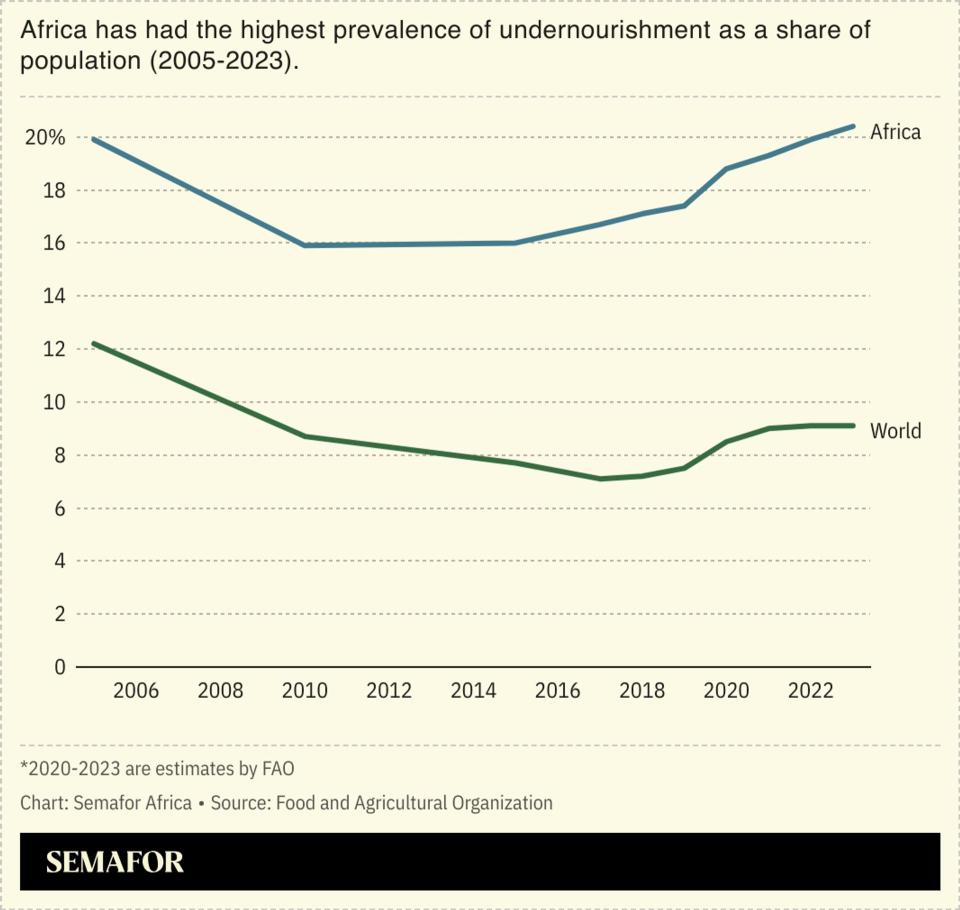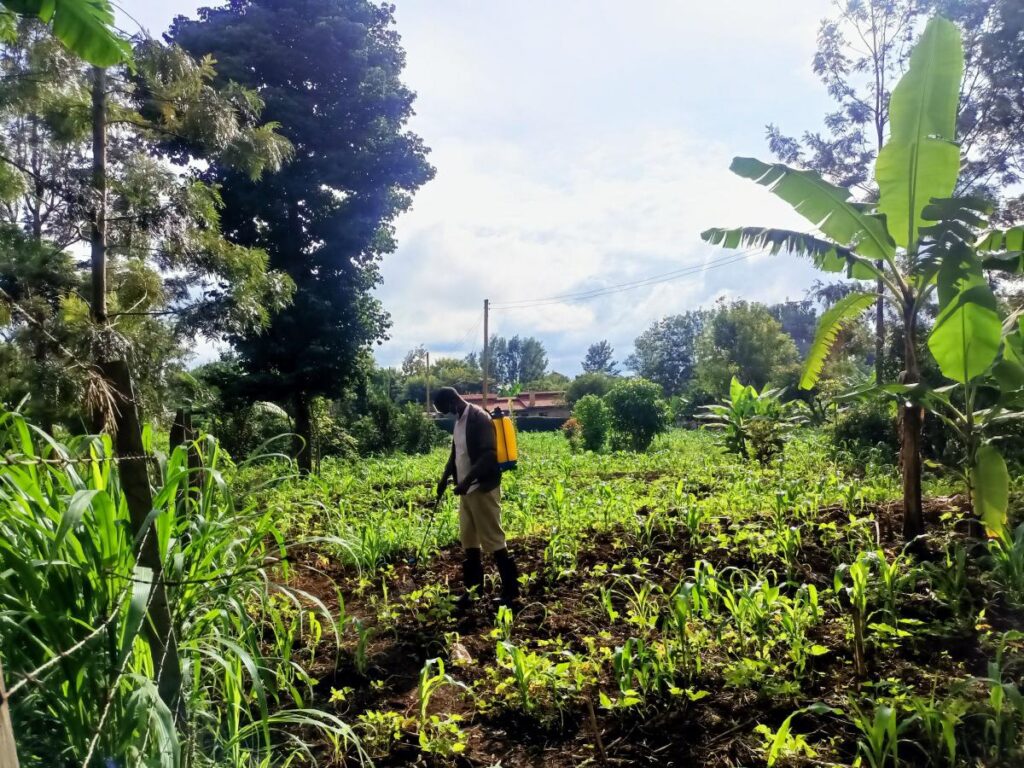The news
Innovative financing models are needed to stimulate investment and prevent food shortages in Africa, which are expected to hit countries in the coming years, a senior UN official told Semafor.
Alvaro Lario, president of the UN’s International Fund for Agricultural Development (IFAD), pointed to a new UN report that predicts that Africans will make up more than half of the 582 million people worldwide expected to be chronically undernourished by 2030.
The annual State of Food Security and Nutrition in the World (SOFI) reportpublished on Wednesday, found that Africa had the highest share of people facing hunger in 2023 — 20.4%. The authors said there was a “clear trend” of increasing hunger in Africa, while progress had been made in Latin America and the Caribbean and the situation in Asia remained relatively unchecked.
Lario, whose agency invests in the long-term global food security, said the trends in Africa were “extremely worrying.” He told Semafor Africa that more innovation is needed, such as partnerships between financial institutions and the private sector to finance climate adaptation projects, to stimulate greater investment in agriculture and livestock.
“We want to bring more financing — not all financing can come in the form of grants,” he said. “What we need to do is make sure that financing catalyzes further mobilization of resources.”


Knowing more
The SOFI report, jointly produced by UN agencies including IFAD, the World Food Programme and the World Health Organization, highlights the continued impact of supply chain shocks resulting from the war in Ukraine and the COVID-19 pandemic.
Lario said African countries need to diversify their crops, to reduce dependence on imported crops and produce more fertilizers locally. “There has to be a certain degree of self-reliance if you want to avoid these kinds of short-term shocks that are very difficult to overcome,” he said.
Alexis’s vision
Food security issues are of paramount importance across Africa. So many of the political, economic and social upheavals we have seen on the continent in recent years are linked in some way to this issue.
On the face of it, Kenya’s mass protests were sparked by unpopular tax hikes. But those plans came amid high living costs, driven by food inflation. And Kenya is not an isolated case; high food inflation in recent years has also fueled discontent in other African countries, including Nigeria and Ghana.
These prices are linked to a lack of access to nutritious food, which is driven by global supply chain shocks. The solution to this food insecurity lies in addressing a variety of issues that go beyond models to stimulate private sector investment in agriculture. That is important, of course, but so is improving security to mitigate the impact of conflict on food production. Farmers in Mali And Northern Nigeriafor example, were forced to leave their lands as they fled Islamist insurgents. Such uprisings, which have destabilized countries around the Sahel, prevent crops from reaching markets and, in extreme cases, cut off entire rural areas.
Better transport infrastructure, through road and rail, would help the movement of food between countries and better implementation of the African Continental Free Trade Area would make it easier for countries to move food across borders. This would be achievable through administrative changes, such as the implementation of continental food standards agencies to facilitate the movement of goods and remove the bottlenecks caused by different countries each having their own rules and regulations.
Room for disagreement
Ndidi Nwuneli, CEO of One Campaign, a non-profit organization working to end extreme poverty, told Semafor Africa that the root causes of food insecurity in Africa lie primarily in the fact that the continent is disproportionately affected by the global climate crisis. She said the problems faced by African countries due to floods and droughts were exacerbated by the pandemic and the debt burden of many governments on the continent.
Nwuneli said countries have become more inward-looking and protectionist in response to supply chain constraints caused by the pandemic, with many African countries “prioritizing debt repayments” over climate adaptation investments.
She said solutions to the food crisis in a number of African countries require a focus on climate change adaptation, such as “climate change debt cancellation and climate and food security debt swaps”. She said there were “many creative possibilities” when it came to debt investment interventions.
Remarkable
-
Blessing Akombi-Inyang, a Nigerian academic based in Australia, specializing in global health, argues in The Conversation that the Nigerian government should ensure adequate nutrition for pregnant women, support small-scale farming and establish community programs to treat malnutrition. She makes the recommendations in response to UN figures suggesting that around 11 million Nigerian children face “severe” food poverty.







